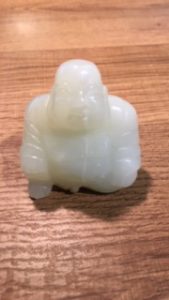Plague Journal, Buddhism Lifeline or Straw?
Why Buddhism?
 We began several sessions to consider concepts entailed in Buddhism; not easy or comfortable for Americans who are natural pragmatists. Habits of thinking by categorizing, labeling experience is our default. Buddhist thought is a bid to move in another direction: reality as seamless, metaphysical monism. There is no purity or pollution, birth or death, Being or Non-being — strictly speaking in the manifold of what is real… That is the mind bending assertion of Buddhist thought as far as I understand.
We began several sessions to consider concepts entailed in Buddhism; not easy or comfortable for Americans who are natural pragmatists. Habits of thinking by categorizing, labeling experience is our default. Buddhist thought is a bid to move in another direction: reality as seamless, metaphysical monism. There is no purity or pollution, birth or death, Being or Non-being — strictly speaking in the manifold of what is real… That is the mind bending assertion of Buddhist thought as far as I understand.
We began by reading The Heart Sutra a collection of verses, a discourse by the Buddha of Compassion with a follower, Sariputra. A member of our circle of six confessed that the material left him confused. Confusion is a good sign, the indication that one is on the right path to explore the meaning of the lines of this best known text of Mahayahana Buddhism. The title in sanskrit can be translated The Heart of Wisdom That Crosses Over… Even the title is ambiguous, a provocation to the mind of the reader.
Why wrestle with this material?
I awakened before daybreak, so early that The Daily update from the New York Times had yet to arrive on my cell phone. The world, the local world of my country is no less a shit-storm of conflict, climate induced destruction, wild fires, a hurricane, our President continuing to dispense the verbal fabrications constituting his fantasy about himself, in short his overwhelming popularity among American people — than it was yesterday. When the New York Times report arrives I will have the latest detail of the misery, or to state the matter in a emotionally-even way, the “dissatisfaction” that is hallmark of life in general. This accords with the assessment offered by the Buddhist tradition: Life is unsatisfactory.
Should or could we all become adherents of religious Buddhism? Is that necessary? Could we do so if we desired to make such a change? I think it would be difficult to be a member of a Buddhist Sangha, a temple. Buddhist congregations are few. We are of a western culture and Buddhist ways of thought are not native to us. Buddhist forms of religious ceremony are alien, imbued with features of foreign culture. I do not think one could adopt any religion without the support of a community of like-minded people.
Nevertheless we can benefit from the core ideas conveyed by Buddhism. Those ideas can be productive, giving a different angle of view to our natural manner of thinking about our behavior, about relationships to others. I can benefit from understanding how emotions arise within me, especially anger or fear. And what about craving? Would my world be a brighter place if my suffering (dissatisfaction) were less? Would not others benefit, if I were more mindful, more kind, etc. No doubt. Like the ripples from a stone tossed into a pond, everything is affected, positively or negatively.
If things are to move in a positive direction, we need help. No matter from what direction the bugle of rescue may sound, should we not welcome the aid, and apply ourselves to collaborate with our rescue?
I think so.
It is said that a drowning man will clutch at a straw. This is a lifeline.
To conclude with a song, a reminder that life is a spectrum of experience. This song from the 50s conveys the raw energy, a rush of anticipation, life itself, creating helter-skelter a world of beauty, of challenge….
Yes, the video is not the best, and that world has passed, — but the truth remains.